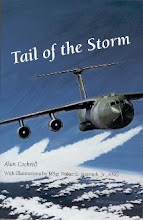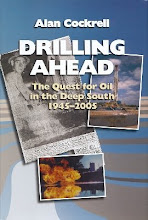Two weeks after my final interview the letter came, but it was neither an invitation to sign on the dotted line, nor a rejection. I was now in the “hiring pool.” Hiring had ceased, for reasons the letter didn't give. I would be informed if and when hiring resumed. I called my old friend Russ, the commander of the Memphis Air Guard unit and asked him if the C-141 instructor job was still mine, and he said yes―in about six months. Not a problem. I could hold out for it. And I could brag to my grand kids that a major airline accepted me; I supposed there was some gratification in that.
But the airline spoiled my plans. Two months later they called and told me to go immediately to the Denver training center. I reported to class and got my number―the most revered, most exalted, most sacred number a commercial airline pilot kneels before: the company seniority number.
I looked around at my classmates. Most were men. Ages ran from mid twenties to early fifties. This was a totally new era in airline pilot hiring. Previously no one over 35 needed bother to apply; older pilots were less likely to swallow the company Kool-Aid. The younger ones, on the other hand, could more easily be groomed. But now the industry was growing like wildfire, driven by cheap oil and a blossoming economy. A large bubble of airline pilots nearing retirement added fuel to the fire. The airlines were forced to abandon their old policy of hiring only young pilots so that they could mold them to company specifications. The sardonic colonel I had encountered at Airlift Operations School would have said the airlines needed more monkeys for their cockpits. (See Monkey Business)
The first order of business was to introduce ourselves and say something about our backgrounds. As the first “new hire” stood up to speak, I figured I would hear a few haughty speeches about valiant aviation achievements, but to my pleasant surprise, none was tendered. It was evident that the vastly qualified guys were not interested in embarrassing those who were barely employable. There were no braggers. I felt good about my new associates.
Toward the end of the day the anxiety level rose as the bidding process for our first assignments began. A company man wrote on a display board a list of vacancies. Each listing consisted of a type aircraft, a particular seat on that aircraft, and a crew base, or domicile as the airlines called it. I got what I expected, a second officer seat on a Boeing 727 at Chicago O’Hare―the company's mother base.
It troubled me. It was not a flying job. In fact, I would have to sit sideways in the cockpit. I wouldn’t even have a window. My job would be to look after the fuel, electrical system, hydraulics, pneumatics, and other systems that kept the 727 humming, while the captain and first officer did the fun stuff. Furthermore there was nothing fun about the training or the environment.
The company had suffered a devastating pilot strike four years earlier, and tempers still seethed. The training center had hired a corps of scab instructors. Their counterparts out flying were suffering daily revilement. They in turn took requital inside the training center walls, where they predominated. This would change as the new decade of the nineties rolled in. But for our class there would be no traditions, no time-wasting ceremonies, and damned few welcome mats. We were simply newly acquired company assets, to be fed into a training machine and spat out the other side, stamped Ready to Fly.
I met my “stick partner,” Norm Moore, a retired Army warrant officer. Norm had never had never touched a jet. His experience in Army twin engine King Air turboprops was his only claim of sufficiency. In the weeks ahead Norm and I would share the same instructor and would become study partners. With the weight of the oppressing culture hanging over our heads like a cocked guillotine, Norm and I hit the books, took notes, crammed like college kids, and toiled daily in the 727 simulators.
We would alternately sit at the second officer's panel in the retched “box.” He watched while I jumped through hoops. Then I watched him sweat bullets. I hated second officer training. “This is not pilot stuff!” I declared to Norm when we took breaks and got out of earshot of the instructors. We just sat in front of that intimidating panel, so crammed with dials, switches and buttons that we became automatons―seeing a needle out of limits or a light come on that boded trouble, and informing the captain, going to the checklist at his command, reading it, doing the stuff it said to do, watching for the results. Waiting, watching for the next malfunction, straining the brain for pieces of vital information from the classroom, from last night's reading assignment, trying to remember, remember, remember. I hated rote memorization.
Norm got more nervous as check ride day approached. His lack of jet experience worried him. I consoled him, telling him my extensive jet experience didn't mean beans in this place, that we were on equal ground. But secretly I figured I was only helping his self confidence. Our instructor pulled me aside and said I was doing great but he was worried about Norm's progress. I agreed and assured him I was doing all I could to get Norm ready. Then check ride day came.
Norm was a nervous wreck. “I've got a bad feeling about this,” he told me.
I fidgeted while Norm went into the box. The standards captain was an intimidating scab. Two hours later Norm came out smiling. He passed. He was a Second Officer. It was my turn. I went into the box.
Two hours later I came out shaking my head. I was not a Second Officer. I busted. I had tried to parallel generators without syncing them―a no-no of colossal proportions. I knew better but I let the scab's harsh manner intimidate me and I lost my poise. Norm was astounded that it was me and not him.
I reported to the box for additional training the next day―with a despicable scab instructor. That jerk ratcheted the intimidation factor up to the point that I marched out and took a flight home. I told Eleanor airline flying was not for me. I would take the C-141 job at Memphis.
The next day I got a call from the second-in-command of the training center. He wanted to know why I left. I stuck to my manly moral ground―no excuses. It just wasn't for me. Fifteen minutes later he had me convinced that walking out was a mistake. He asked me to come back. He said if I wanted to quit, I could decide that later. I was too close now, he said, to bug out.
I looked at Eleanor. She shrugged. I shrugged. I went back. I passed. Those five weeks were dark times, but it's been a good ride ever since.
I have also helped establish a new website honoring the pilot killed in that crash:




Your recurrent use of the word "scab" is a distraction from your interesting story. How come these instructors' hiring circumstances, years before your own arrival, seem to bechip your shoulder so?
ReplyDeleteWould you rather I used "strike-breakers"? How about "honorable gentlemen who double-crossed their friends." Let me make myself clear. The attitude of some of the scab instructors was to intimidate anyone over whom they commanded authority, because they (not I) were bechiped.
ReplyDeletep.s. I have, and still have, friends who scabbed.
The "scab bechip" is something that crops up in a number of countries aviation histories and the attitude is the same all over the world. Sure they may have only been doing what was best for their families and every acknowledges that, but at the end of the day they sold out their pilot brothers and sisters who were trying to make the industry a better place.
ReplyDeleteAt the end of the day, it can be argued the likes of Colgan, Jetstar Asia etc. are a direct result of various scab groups.
P.S. Alan, really enjoying this series, will there be a Part IV?
Cap'n Cockrell:
ReplyDeleteI went and read the "Sabre Dance" article. That there is some seriously good writing -- Congratulations!
Regards,
Frank
Another great blog in the can. Thanks for sharing your thoughts.
ReplyDeleteHaving flown the panel I will cast my vote that the initial training on the 727 panel was difficult. The systems knowledge was based on the idea that the instructor expected you to take aluminium and make the aircraft from scratch. And if all else fails you could revert to the "big u and little u" scan.
Thanks, Alan. Great Post. I'll visit saberdance.net. -C.
ReplyDeleteP.S. I have no trouble with the 'scab' term. In another industry, been there and seen it. Enough said. -C.
ReplyDeleteGood thoughts on how one decision can change a life.
ReplyDelete"Scab" is not a great term.
David H.
hey,
ReplyDeleteThanks for this great blog. I've been a lurker here for a while now, enjoying your Stories.
I'll take a look at Sabredance.net